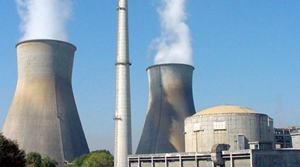Ahmedabad, Mar 11: One of the two 220 MW units of Kakrapar Atomic Power Station(KAPS) in Gujarat's Surat district was today shut down after leakage of heavy water and a temporary emergency situation was declared but there was no radioactive leak and all workers are safe.
According to officials, the leakage of heavy water that is used in cooling off the nuclear reactor core was detected around 9 am and it was fixed in some time and the temporary emergency was lifted shortly afterwards.
Surat District Collector Rajendra Kumar said there was no leakage of radiation at the plant and the situation was under control. The incident took place on a day when Japan marks the fifth anniversary of Fukushima nuclear disaster caused by a monster tsunami.
KAPS site director L K Jain in a statement said radiation levels in and outside the plant are normal.
"Unit-1 of KAPS, which was operating at its rated power, was shut down at about 9:00 Hrs today. Consequent to a small leak in Primary Heat Transport (PHT) system, the reactor was shut down as intended as per the design provisions. All safety systems are working as intended," the statement said.
"The radioactivity/radiation levels in the plant premises and outside are normal. KAPS 1 and 2 consists of two Units of Pressurized Heavy Water Reactors of 220 MWe each," Jain added.
The KAPS, located on the border of Surat and Tapi districts near Vyara town of Tapi, is run by Nuclear Power Corporation of India Ltd (NPCIL).
"The director of the plant informed me that unit-1 has been shut down following a problem in the primary heat transmission system. There was some leakage of heavy water that is used in cooling the reactor core. At present, the situation is under control," Rajendra Kumar told PTI.
According to KAPS website, the power station has two generation units of Pressurised Heavy Water Reactors (PHWR) that were commissioned during early 90s.
"The problem was detected in the morning and it has been fixed as of now. The plant also declared temporary emergency, which has been lifted after some time.
As of now, there is no emergency and things are under control. We are told that Unit-1 will take some time to start functioning again," Kumar added.
Meanwhile, neighbouring Tapi district administration also swung into action and sought details from plant officials after learning about the leakage. Tapi District Collector B C Patni also confirmed that there was no report of radiation leakage.
"The problem occurred in Unit-1 of the plant at around 9 am. As per the reports received from the site director, all the employees are working in the plant and no internal or external radiation leak took place. The leakage of liquid has been fixed," said Patni.





Comments
Add new comment